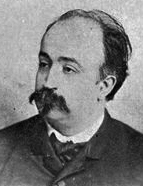

In is within this context that the relevance he himself attributed to his works on Portuguese economic history and the history of Portuguese economic thinking should be situated. The earliest find their expression mainly in the essay on historical periodization which makes up the fifth chapter of the first part of his Princípios… as well as in the study of banking history included in the second part of the same work. The periodization derived from the history of productive activities allows him to identify three distinct epochs. The first corresponds to Antiquity, and is characterized by a social differentiation between free men and slaves. This is followed by another, lasting roughly until the French Revolution, marked by the fact that industries have “a more differentiated organization: in agriculture feudal servitude, common law, and mortgaged, entailed or defective property; in manufacturing the servitude of the workshop and the guilds of the arts and crafts; in commerce the corporations, the leagues of the maritime nations, the trading by the nation and by monopoly companies” (Princípios…, p. 121). Finally, from the French Revolution there has been a period characterized above all by free competition, so that Laranjo’s aim is to prepare the way for the arrival of the fourth period, that of association. Observation and the study of economic reality “prove that we are in a critical economic epoch” (Idem, p. 138), dominated by class conflict and anarchical competition. The dominant diagnosis of the political economy was inadequate: “The analysis that the individualist school makes of competition is incomplete, because it detaches it from historical circumstances; free competition appeared with the distinction, already profound, between businessmen and workers, with large-scale industry, and with the prohibition on workers’ association, and for all these reasons has produced not equality but industrial feudalism” (Idem, p. 137). This is a merely transitory state of affairs which calls for its removal, given that “we see nothing but grains of sand without cement, individuals, unconnected atoms. And individuals […] that are nothing in the face of the great industrial companies, which they can only resist by organizing themselves” (Idem, p. 138).
